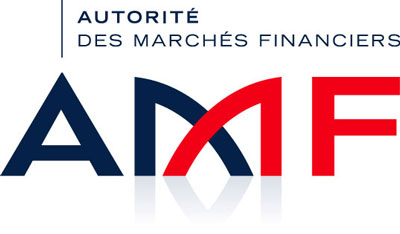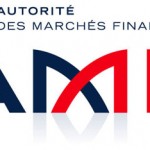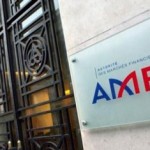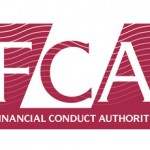Forex, binary options and online financial scams; AMF joined forces with other bodies to eredicate the problem

The Autorite Des Marches Financiers (AMF) has issued a press release to inform that the AMF, the Paris public prosecutor, consumer affairs watchdog DGCCRF, and prudential authority ACPR joined forces to eradicate the problem with Forex, binary options and online financial scams.
According to AMF press release:
The general public is increasingly falling prey to fraudulent credit and investment offers, against the backdrop of an economic crisis and proliferation of online providers. Faced with this scourge, which has led to ruinous losses for individuals, four entities are committed to denouncing these practices, limiting their impact through numerous coordinated actions, and alerting members of the public. At a joint press conference, they updated on the alarming scale of the phenomenon and called for public awareness of such scams.
Forex, binary options, unusual assets, false savings accounts: the illusion of easy money…
Betting on Forex or trading binary options, investing in rare-earth or precious metals: the number of on-line offers targeting the general public is legion. Highly-speculative trading is the most widespread and worrying example. Numerous adverts, displayed on sites with high audiences and targeting the largest number of people possible, flaunt unrealistic promises about gains to be made: companies operating with very dubious, or even illegal, practices are behind these commercial approaches.
Other types of scams based on identity theft (e.g. that of the prudential authority ACPR, the sanctions committee or the Banque de France) are also escalating strongly. Aimed at duping the general public by displaying false logos or authorisations, these offers pretend to help individuals recover their losses incurred on trading sites or repatriate money supposedly seized in a third-party country.
False loan offers with demands to transfer money upfront may also be made to people that find it difficult to get financing.
… and a substantial impact
Four supervisory bodies, alerted to these practices and noting that the problem is expanding exponentially, have drawn up an assessment of the danger this phenomenon presents. The figures are incontestable:
– 360 unauthorised sites currently(1) recorded on the APCR and AMF’s blacklists versus 4 in 2010,
– 1,656 claims made to the AMF in 2015 – versus 64 in 2010,
– 12% of demands received by the ACPR in 2015 versus 4% in 2014,
– 41% of the 14,500 calls about stock markets and financial products made to the Assurance Banque Epargne Info Service (ACPR, Banque de France and AMF) platform in 2015,
– 44% of new online advertising on financial investments in 2015 promoted highly speculative trading,
– 139 mediation cases (authorised sites) at the AMF in 2015 versus 16 in 2011,
– 75 complaints handled by consumer affairs and fraud office DGCCRF in 2015.
An AMF study on the clients of the main providers authorised by serious regulators showed that highly-speculative trading was intrinsically dangerous for individuals: clients recorded EUR175 million in losses versus EUR13 million in gains over four years and 90% of the investors were loss-making(2)
Moreover, according to the Paris public prosecutor’s office, estimated losses on illegal Forex/binary option websites and scams through false transfer orders amounted to EUR4.5 billion in France over six years.
In any case, none of sites allow for fully-secure trading or generate the professed returns: the individual exposes himself at best to heavy losses, and at worst to a real scam, the level and methods of organisation of which suggest organised crime involvement. Compensation of the victims is difficult, and nigh on impossible.
With regard to identity theft or fraudulent loan offers, the losses can range from tens of thousands to hundreds of thousands of euros per person.
The means deployed by the competent bodies and the much-needed call for greater vigilance: a matter of public interest
- The financial regulator (AMF), convinced that access for individuals to these highly-speculative tools is dangerous in itself, has increased the number of communication campaigns and uses all the means at its disposal to tackle the problem: court injunctions to get illegal sites closed down, investigations into authorised entities and non-regulated sites, action taken to get the Cypriot regulator to develop controls and sanctions against authorised companies in this State.
- The prudential supervisory authority (ACPR), which is also faced with an expansion of fraudulent loan offers, is acting to get infringed domain names and illegal sites shut down, and alerting on the numerous cases of identity theft it has been victim to, as has the Banque de France.
- Consumer affairs and fraud control watchdog DGCCRF aims to ensure honest information for consumers. It actively monitors the practices of online operators, detects and sanctions misleading marketing practices. Online trading or unusual investment activities are often concomitant with a certain ambiguity in information delivered, a misleading presentation of expected gains and related risks, and opaque commercial transactions. The office implements procedures to end and sanction such practices. Cases of fraud are the object of procès-verbaux (authenticated accounts of proceedings) referred to the public prosecutor for criminal prosecution.
The AMF and the DGCCRF also welcome the measure set out in the transparent and modernisation of the economy bill, the so-called Sapin II bill, aimed at banning advertising on the most high-risk products. This provision is a real advance in consumer protection.
The AMF, ACPR, DGCCRF and the Paris Prosecutor, which each have specific areas of competence, also implement coordinated and joint anti-fraud and investigation initiatives: notably the transmission of complaints and reports, and collaboration on enquiries. Nevertheless, despite the judicial, legal, legislative and institutional weapons deployed, it is an uphill battle given the power of the internet which permits an explosion in reprehensible practices, strong growth in ad exposure and the internationalisation of scams.
These four bodies are working to denounce this scourge with one voice, convinced that prevention and communication are the most effective ways to protect individuals. They hammer home a key message: beware of schemes that promise a quick and easy profit, they are a complete trap!
Related Posts
 AMF warns for unauthorised Binary Options trading websites
AMF warns for unauthorised Binary Options trading websites AMF France warns on unauthorised firms offering Binary Options Trading
AMF France warns on unauthorised firms offering Binary Options Trading AMF France warns against the activities of Binary Options Trading websites that are not authorised
AMF France warns against the activities of Binary Options Trading websites that are not authorised AMF has issued a public warning against the activities of individuals
AMF has issued a public warning against the activities of individuals FCA UK warns about a clone investment firm
FCA UK warns about a clone investment firm
























